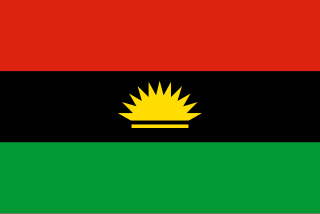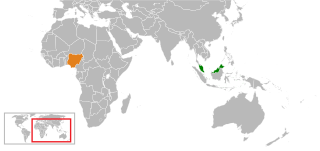The Njiko Igbo Movement is a non-partisan and apolitical initiative spearheaded by Dr. Orji Uzor Kalu to help secure Nigeria's presidential seat for a citizen of Igbo origin. The Igbos, who some pundits believe remain widely resented in Nigeria due to their prominent role in the Nigerian Civil War, have only held the presidency for six months since the country's independence. Despite the seeming political pendulum in Nigeria, according to which the presidency is swapped between the members of different regions on an alternating basis, Dr. Kalu has stated that the Igbos remain a political non-entity and third-class citizens, who have not been provided the opportunity to hold the country's leading political office. [1]
Orji Uzor Kalu was born in April 21, 1960 to the family of Mr. Johnson Uzor Nesiegbe Kalu and Mrs Eunice Kalu. He is the chairman of SLOK Holding and the Daily Sun and New Telegraph newspapers in Nigeria, who served as the governor of Abia State, Nigeria from May 29, 1999, to May 29, 2007. Prior to his election, he served as the chairman of the Borno Water Board and the chairman of the Cooperative and Commerce Bank Limited. Kalu was also a member of the Peoples Democratic Party (PDP), Progressive Peoples Alliance (PPA) and the chairman of the PPA Board of Trustees. He was the party's presidential candidate in the April 2007 general election. He is currently a member of the ruling party after he officially announced his resignation as a PPA BOT.

The Igbo people are an ethnic group native to the present-day south-central and southeastern Nigeria. There has been much speculation about the origins of the Igbo people, as it is unknown how exactly the group came to form. Geographically, the Igbo homeland is divided into two unequal sections by the Niger River – an eastern and a western section. The Igbo people are one of the largest ethnic groups in Africa.

The Nigerian Civil War, also known as the Biafran War and the Nigerian-Biafran War, was a war fought between the government of Nigeria and the secessionist state of Biafra. Biafra represented nationalist aspirations of the Biafran people, whose leadership felt they could no longer coexist with the Northern-dominated federal government. The conflict resulted from political, economic, ethnic, cultural and religious tensions which preceded Britain's formal decolonization of Nigeria from 1960 to 1963. Immediate causes of the war in 1966 included ethno-religious riots in Northern Nigeria, a military coup, a counter-coup and persecution of Igbo living in Northern Nigeria. Control over the lucrative oil production in the Niger Delta played a vital strategic role.
The Njiko Igbo Movement has garnered immense support among Igbos and the wider Nigerian community domestically and abroad, and today boasts branches and support groups throughout the diaspora. [2]
Former Nigerian Senator, international lawyer, and human rights activist Emmanuel Onwe is a founding and executive member of the Njiko Igbo Movement. [3]

Emmanuel Onwe is a lawyer, human rights activist, newspaper columnist, and former member of the Nigerian Senate. He is presently the Commissioner for Information in Nigeria's Ebonyi State. He is also a founding and executive member of the Njiko Igbo Movement.






